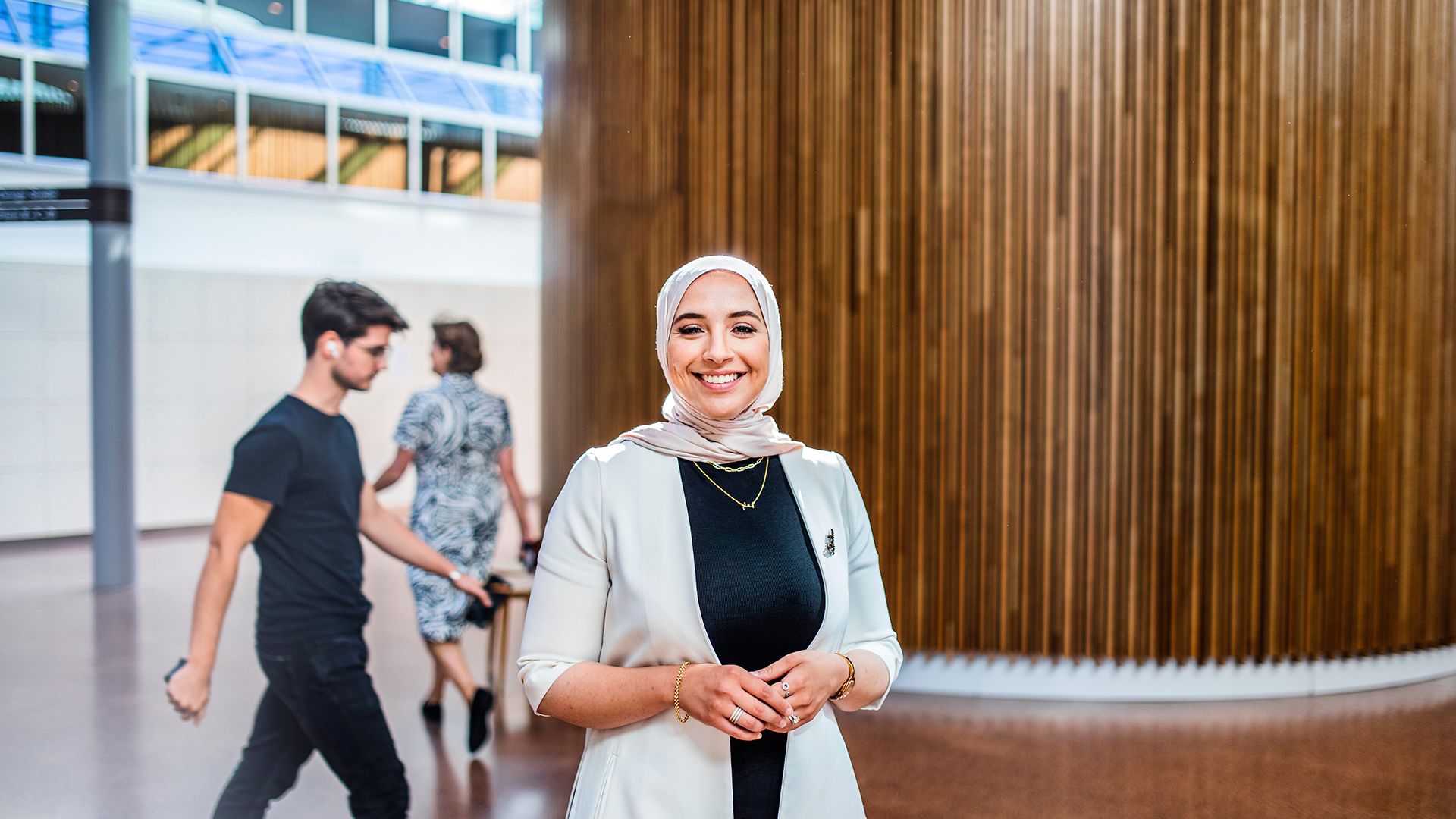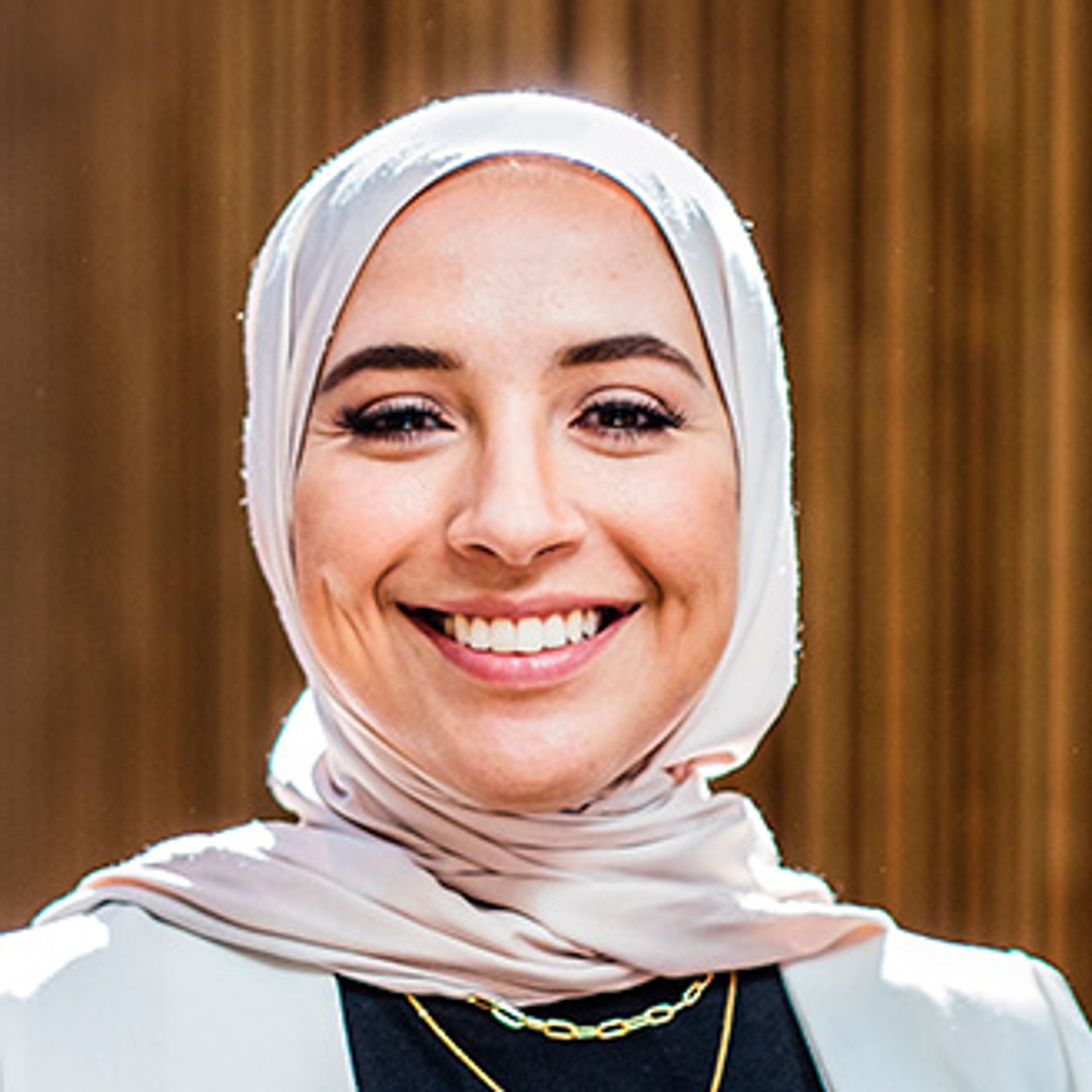'Climate change affects women more than men'
The climate crisis is not only an ecological disaster, but also poses serious dangers to the position of women. Enaam Ahmed Ali, Business Manager at Rabobank and UN Women's Representative 2022, explains exactly what this is like; also while speaking at the United Nations General Assembly. "People often don't know that this is an issue. That's why I'm working on raising awareness."
The Netherlands is one of the few countries to take a women’s representative to the United Nations. “Why are we doing this?” Enaam talks about how we value the position of women in the Netherlands: “The Netherlands has always made a strong case for women’s rights. We are very progressive in this regard, but there is definitely work to be done.”
“My predecessor, Angela Maas, is a cardiologist. She carried out groundbreaking research into the differences between a man’s heart and a woman’s heart. Those differences turned out to be significant: a heart attack in a woman presents itself differently and is less likely to be recognized as such. Her research is helping to bring those numbers down.”
The impact of the climate crisis on women’s empowerment
“The Women’s Representative chooses her own theme. For me, it’s climate combined with the possibilities of technology. Throughout the year I work on raising awareness and venture out into the country to get inspiration for my speech.”
"People don't know that climate change affects women more than men."
“I am active on social media and give presentations, preferably at meetings for young people. When I talk about how climate change affects women disproportionately harder than men, I often hear, ‘I didn’t know this was an issue at all.’”
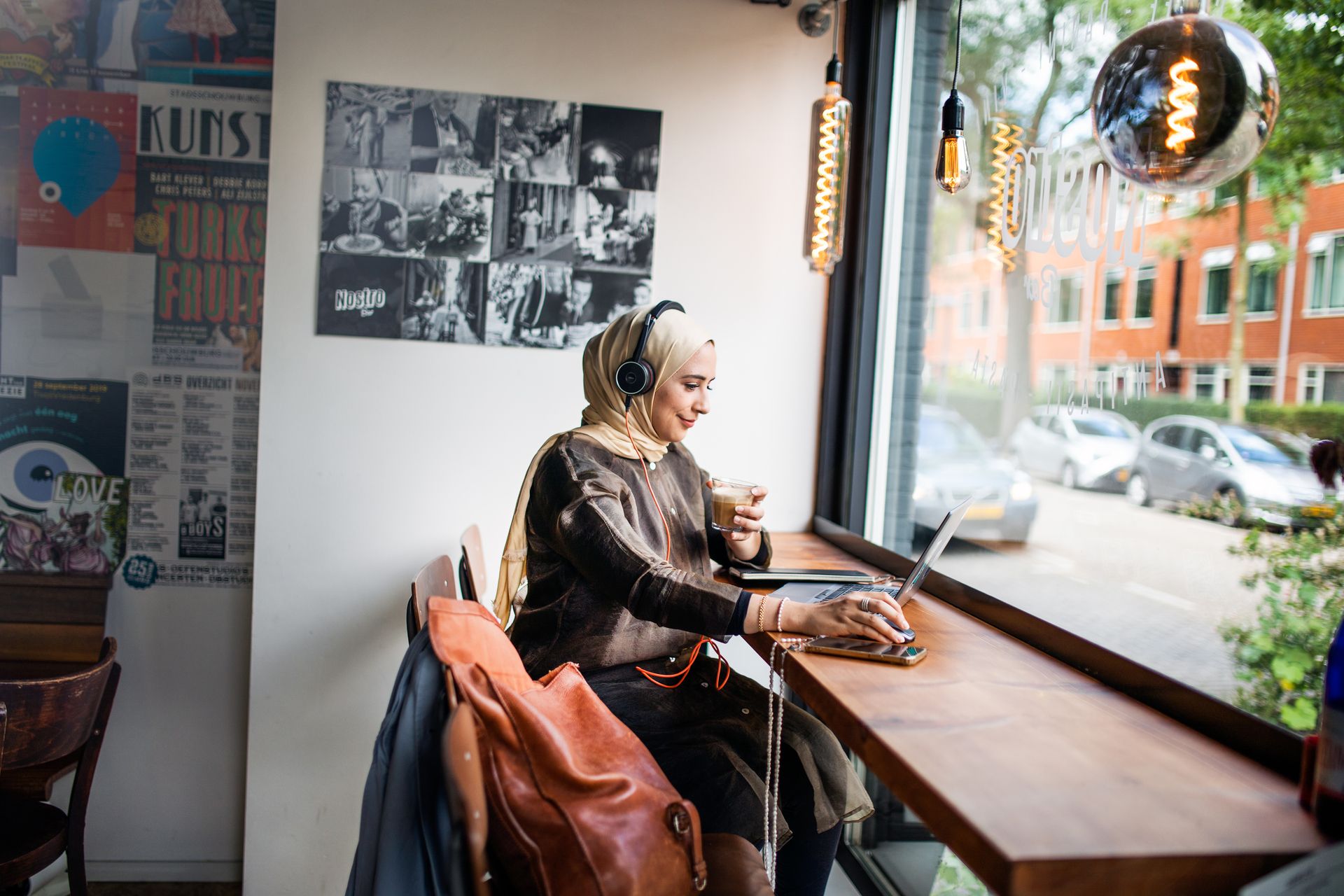
“Extreme weather, whether it’s drought or flooding, can quickly put people in developing countries in a difficult situation. There is a lack of food and families struggle to make ends meet. This results in more girls being married off, because parents are desperate. This way they have one less mouth to feed, and it brings in much-needed money, so the rest of the family can survive.”
“What you also see is that people have to leave their homes because the land no longer produces crops. They often end up in refugee camps. These are generally not the safest environments, especially for women. That’s how climate change is leading to a huge growth in sexual violence against women and girls. As UN Women’s Representative, I want to bring this to the attention of the world, including the United Nations.”
A complex field of work
The Women’s Representative participates in the Commission on the Status of Women and gives a speech at the General Assembly of the United Nations. Within this field of work, Enaam brings her vision on the future of climate, technology and gender to the attention of the public.
“At the Commission on the Status of Women, you work together on a document with voluntary agreements, known as agreed conclusions, between member states. These documents can be used by countries when making policy. It’s hard work to get your vision reflected in the document. Not only do you have to agree on what will be in the document, but also how it will be there. We call this agreed language.”
“Something that was much discussed, was the phrase ‘Women, in all their diversities’. We just can’t get everyone to agree on this terminology. There are many countries that have difficulty with this phrase, because it means that they also have to recognize trans women as women. And a lot of countries don’t want that, because they don’t support it in principle or because of religion. In this case, it’s very important to reach some kind of agreement. I am an optimist, but this is one that still needs to be worked on.”
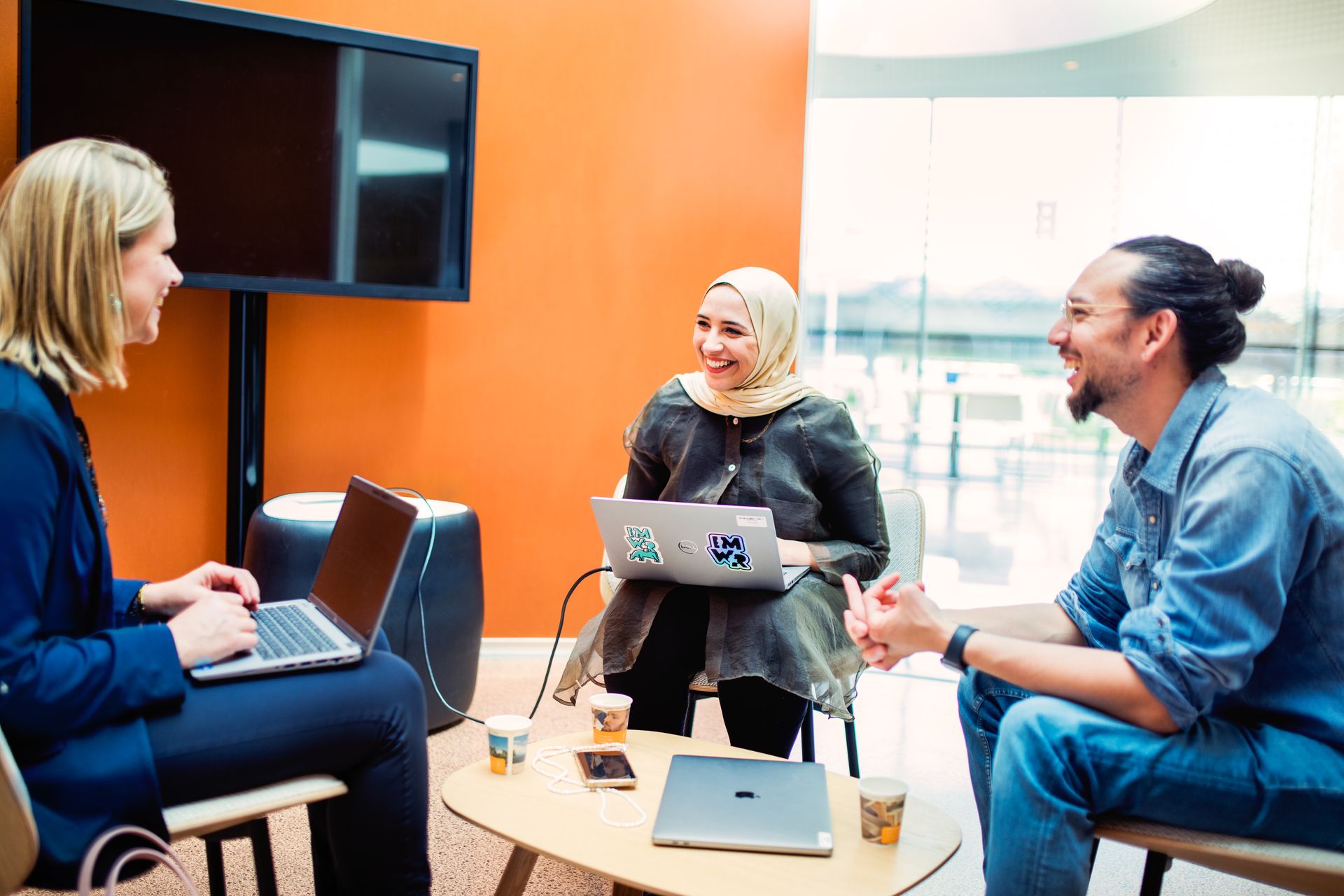
Addressing the United Nations General Assembly
In September, Enaam gets to address the United Nations General Assembly as Women’s Representative. In a 7-minute speech, she speaks about her theme and the actions she would like to see.
“The 7 most important minutes of my life!” Enaam laughs, quickly adding “So far, that is. I’m not sure yet what I want to say in my speech. My themes are climate and technology, and I want to talk about both. In terms of form, I’m thinking of a personal story, not necessarily mine, but a real story of a woman who has experienced the effects of climate change. That makes it human and brings it closer.”
The dangers of innovation to emancipation
Enaam fulfills the role of UN Women’s Representative alongside her job at Rabobank. She follows the Diverse Leadership program, a track that prepares you for senior management. Every 6 months you fulfill a different role. Among other things, Enaam worked for Wholesale & Rural Innovation, did an assignment for Sustainability and is now Business Manager for one of the members of the group management.
“At Wholesale & Rural Innovation, I learned a lot about the position of women in developing countries. About biases that play a role within innovation and technology, and the effect of climate change on the development of countries and women in particular.”
“Many climate solutions are based on innovation and digitalization, but it is not the holy grail. Technology, in addition to solutions, also brings additional dangers for women. For example, because of biases in algorithms, which are used to automate decisions. Also, the digital illiteracy of women is generally higher than that of men. This creates a greater distance between the two in society.”
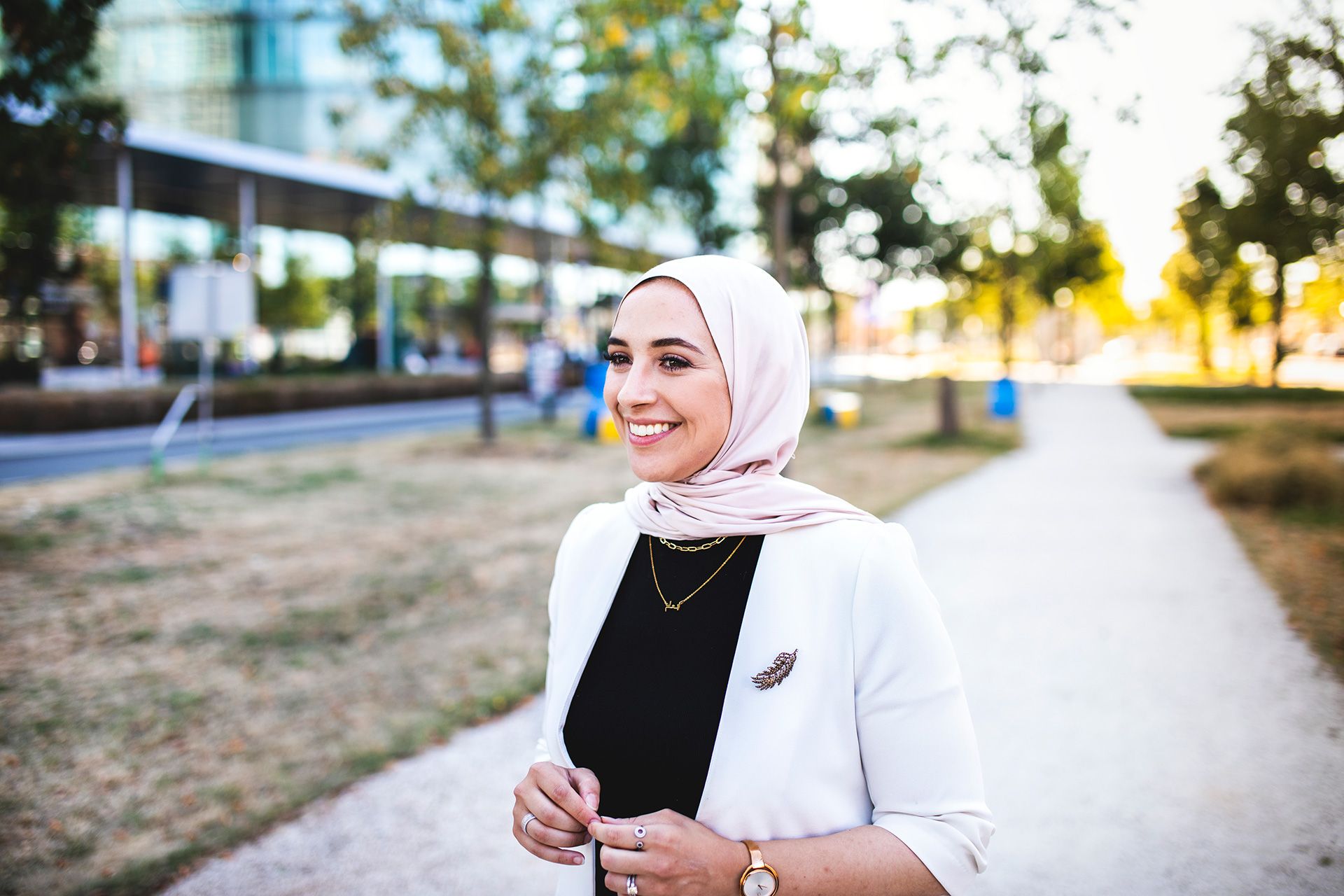
Stand for what is important to you
“I have a hard time with dishonesty. At home, I was expected to do my best in school, but also to be a good housewife later on. From a young age, I felt a difference between my two brothers and me and my three sisters. I just thought it was unfair, that’s where the seed was planted. And as I got older, I saw that there is actually a lot more unfairness in the world. That’s what made my motivation grow.”
“I talk to people a lot. Young people, but also women who are older than me. They offer different perspectives, perhaps because of the age gap. By connecting with people with different perspectives, you gain knowledge. It makes your own thoughts sharper. I get a lot of energy from it!”
“For young women at the beginning of their career, I would say: get to know yourself well. What do you find important, what not, and where are your limits? Stand up for your values, even if it’s not easy. When you are talking about the sustainability policy for example. Not everyone finds that important. But if it is important to you: hold your ground, continue the conversation, take other people along in your vision. If you have ambition as a woman, go for it. You don’t have to be modest about it.”
